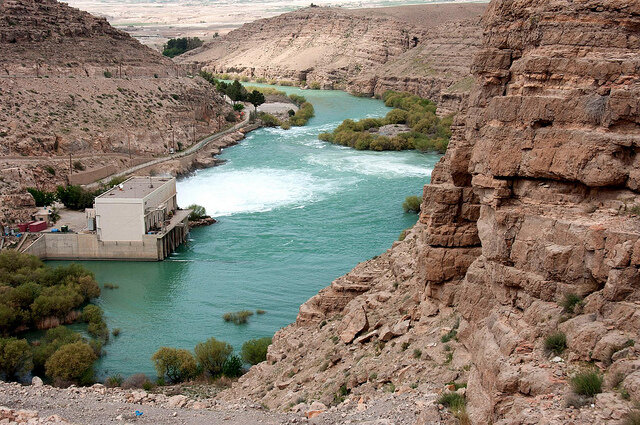MP says Afghanistan has yet to give Iran its full share of Hirmand water

TEHRAN- A member of the Iranian Parliament representing Zahedan has criticized Afghanistan's caretaker government for failing to fully honor its water rights obligations to Iran under the Hirmand River treaty.
In an interview with ISNA, Fada Hossein Maleki stated, “The caretaker government of Afghanistan's assertions regarding the provision of Hirmand water rights to Iran and the Sistan and Baluchistan province are unfounded, as no concrete actions have been taken.”
He pointed out that the Taliban's interpretation of flooding as a means of granting water rights is misleading. “Martyr Amir Abdollahian, Iran’s late top diplomat, recognized that the water received by Iran was not a matter of water rights but rather flooding, a sentiment echoed by the then Minister of Energy. Nevertheless, some have insisted it was water rights, leaving us with ongoing challenges, particularly as the region grapples with severe water shortages,” the lawmaker noted.
Maleki stressed, “It is anticipated that with the efforts of Araqchi, Iran’s new foreign minister, and careful planning in line with international laws, the issue of securing Hirmand water rights for Iran will be actively pursued, as it is a legitimate right of the people.”
The Hirmand River serves as a crucial water resource for eastern Iran, especially within the Sistan-Baluchistan province. It is integral to the agricultural advancement and economic prosperity of the area.
The issue of water rights concerning the Hirmand River has sparked significant disputes between Iran and Afghanistan, with Iran relying on the river for irrigation and accusing Afghanistan of breaching a 1973 agreement on water distribution.
Iran contends that it has not been receiving the stipulated volume of water, resulting in economic, social, and environmental difficulties for its southeastern region.
Securing Iran's water rights to the Hirmand River is vital for the sustainable development and stability of the area, particularly in light of increasing water scarcity and the effects of climate change.
Leave a Comment